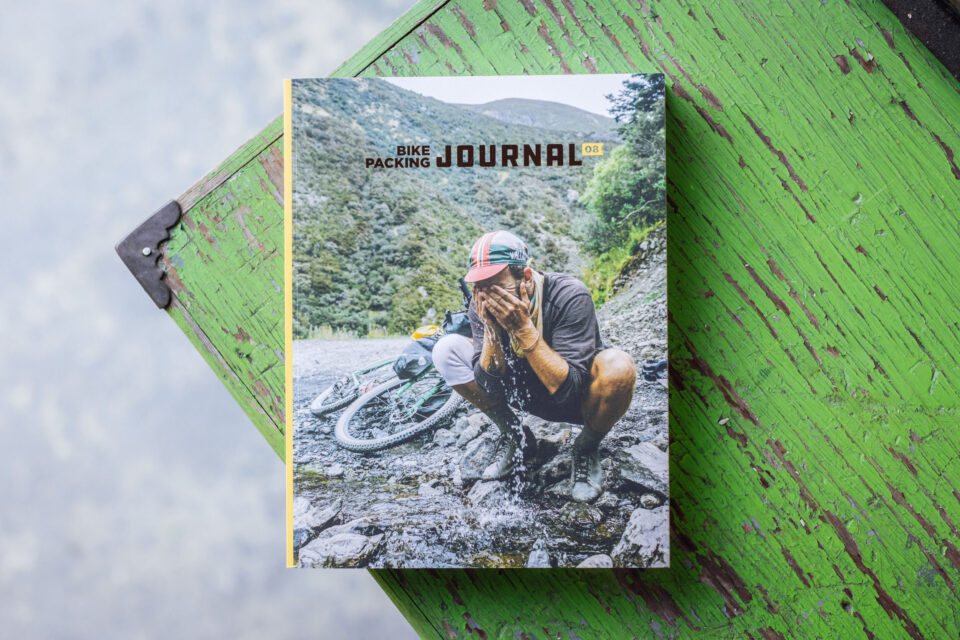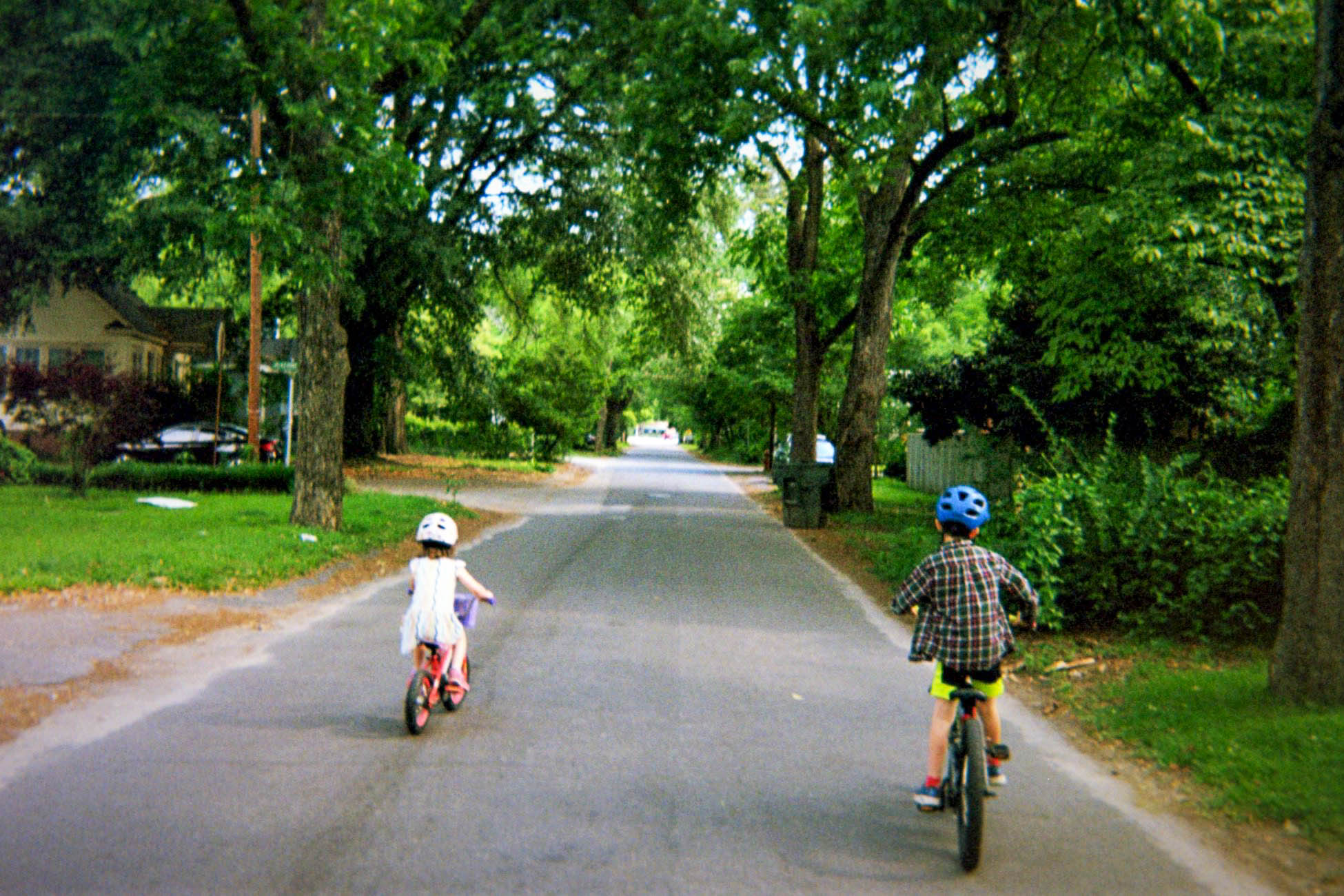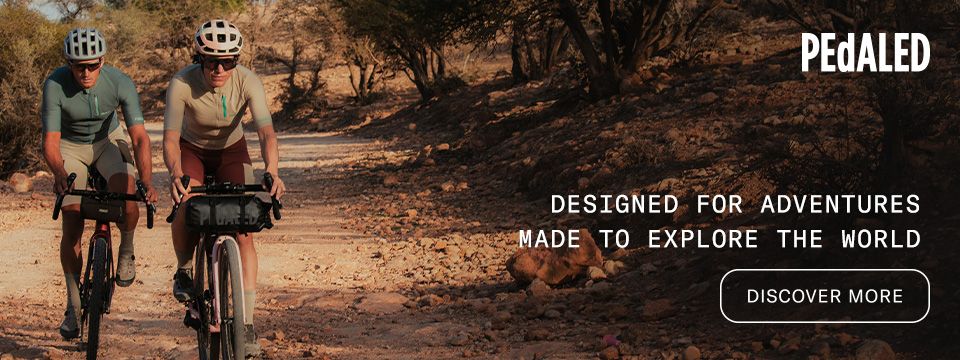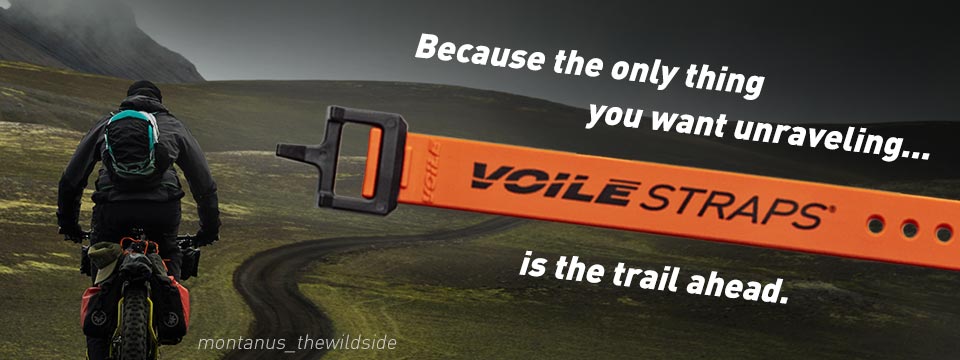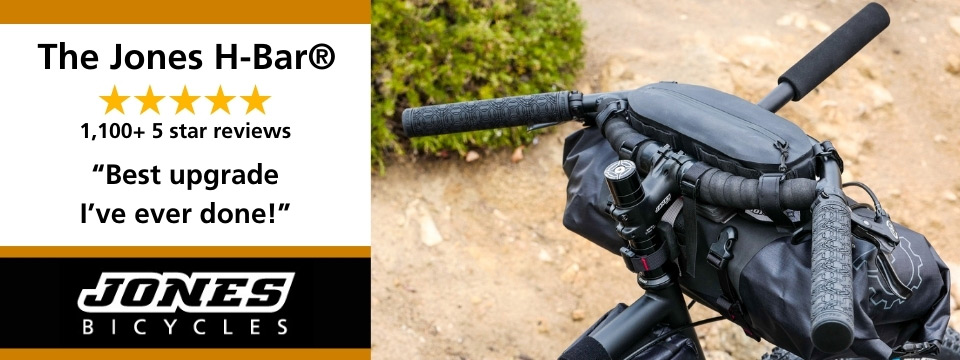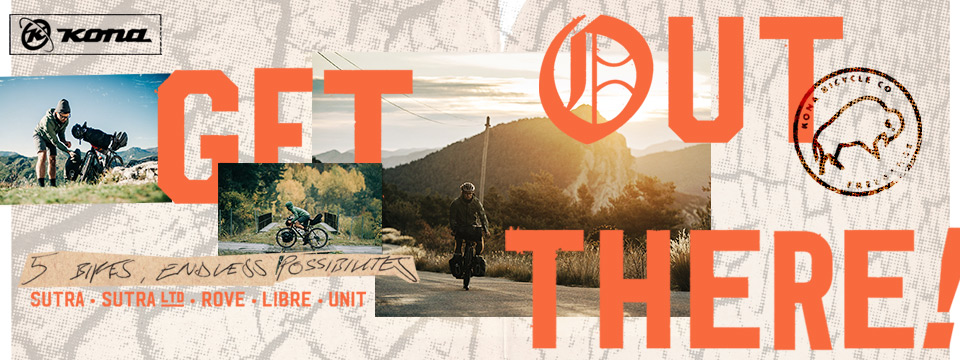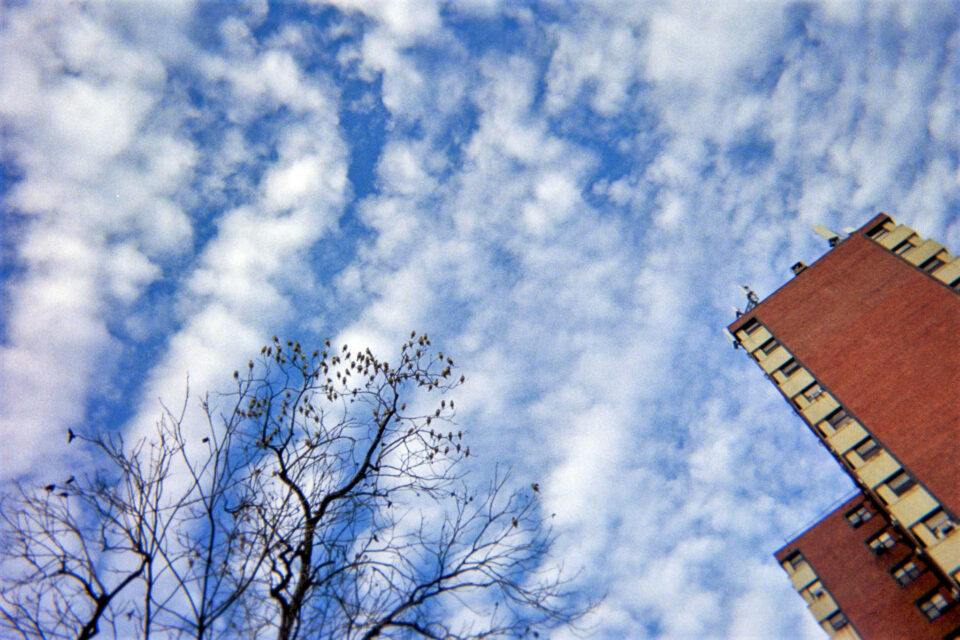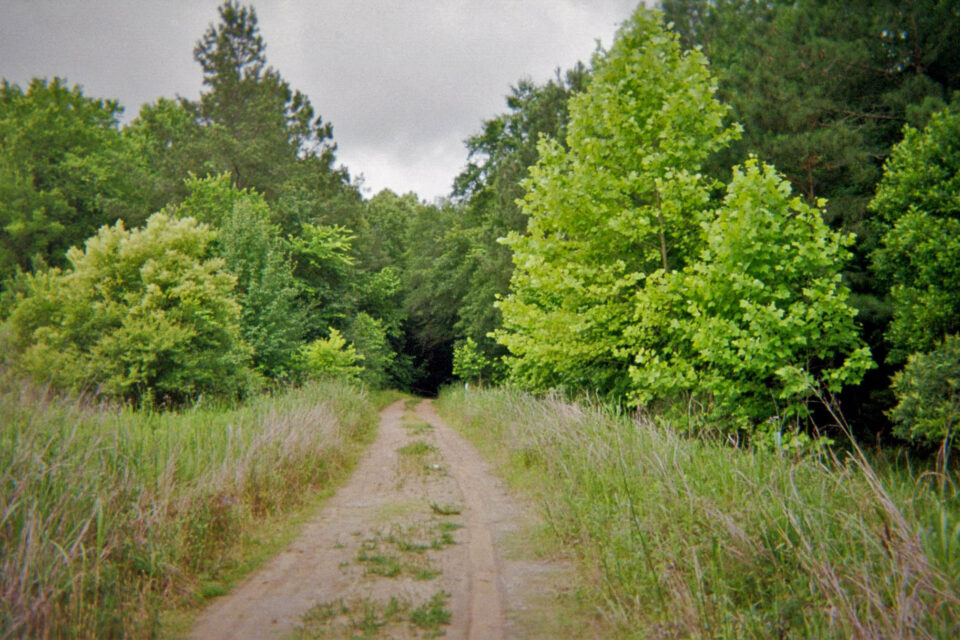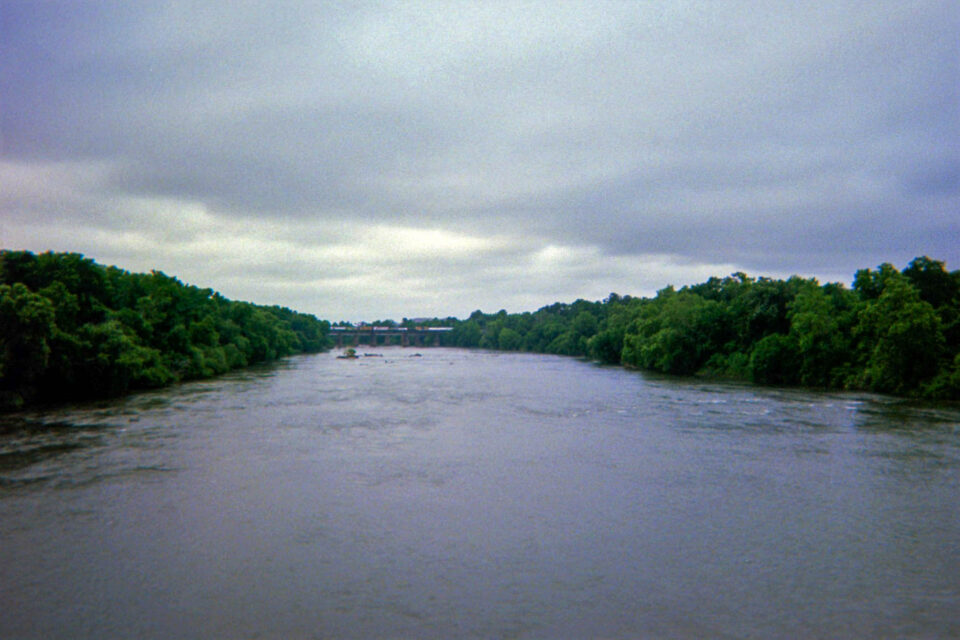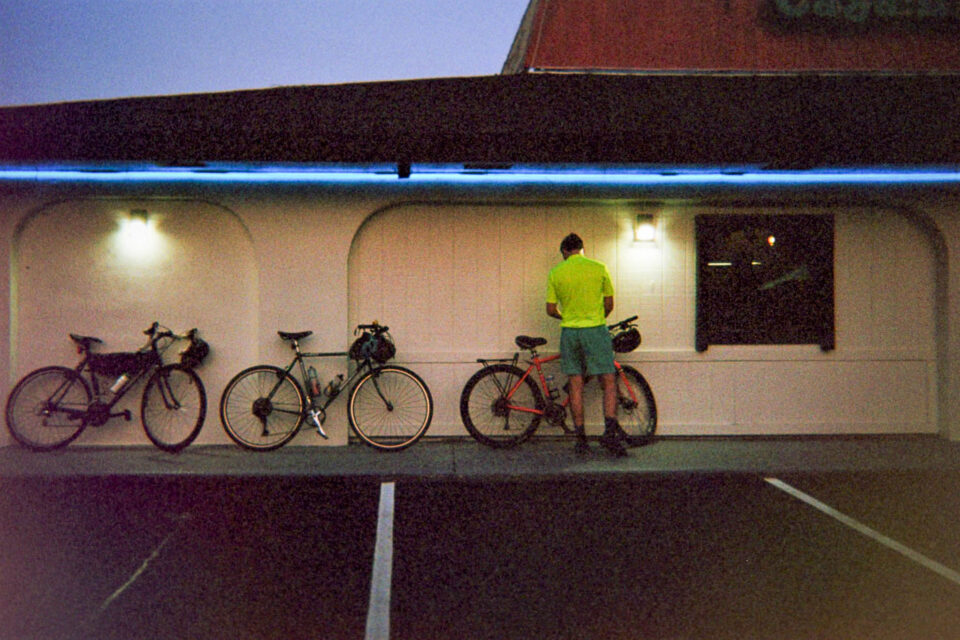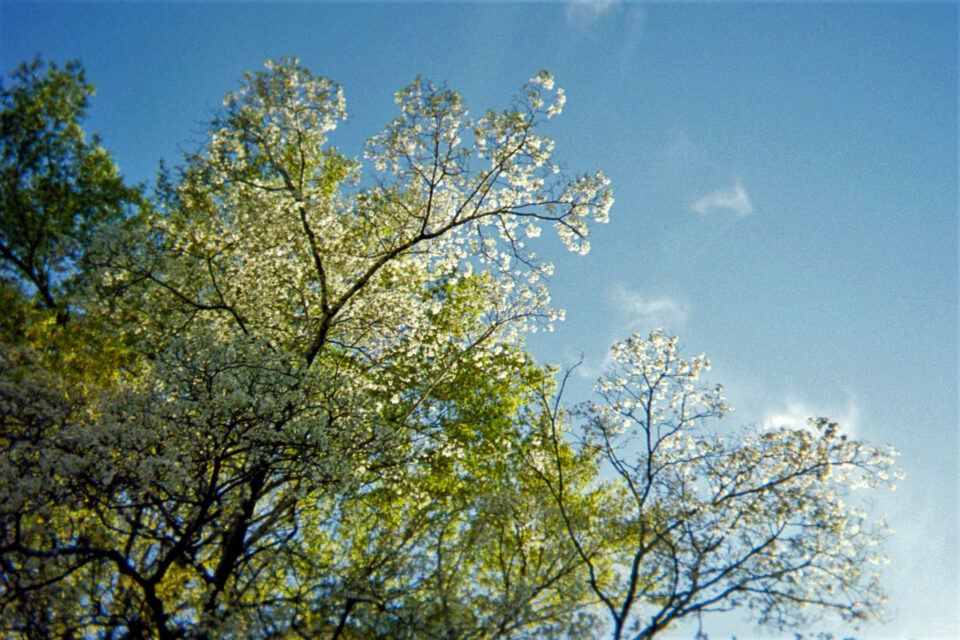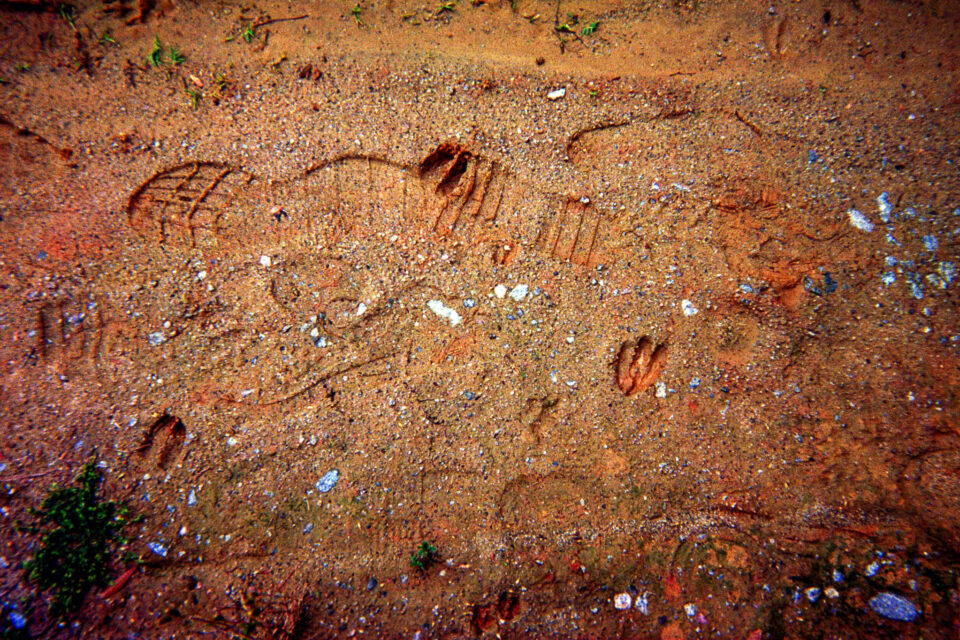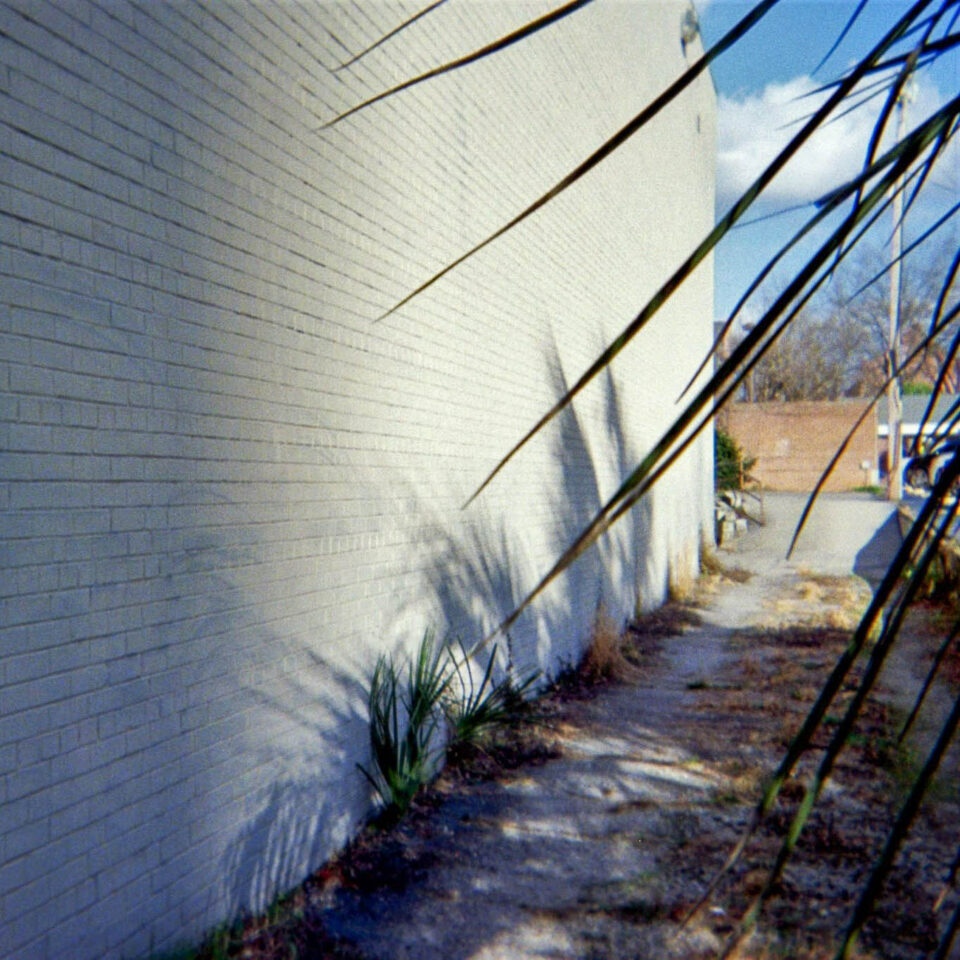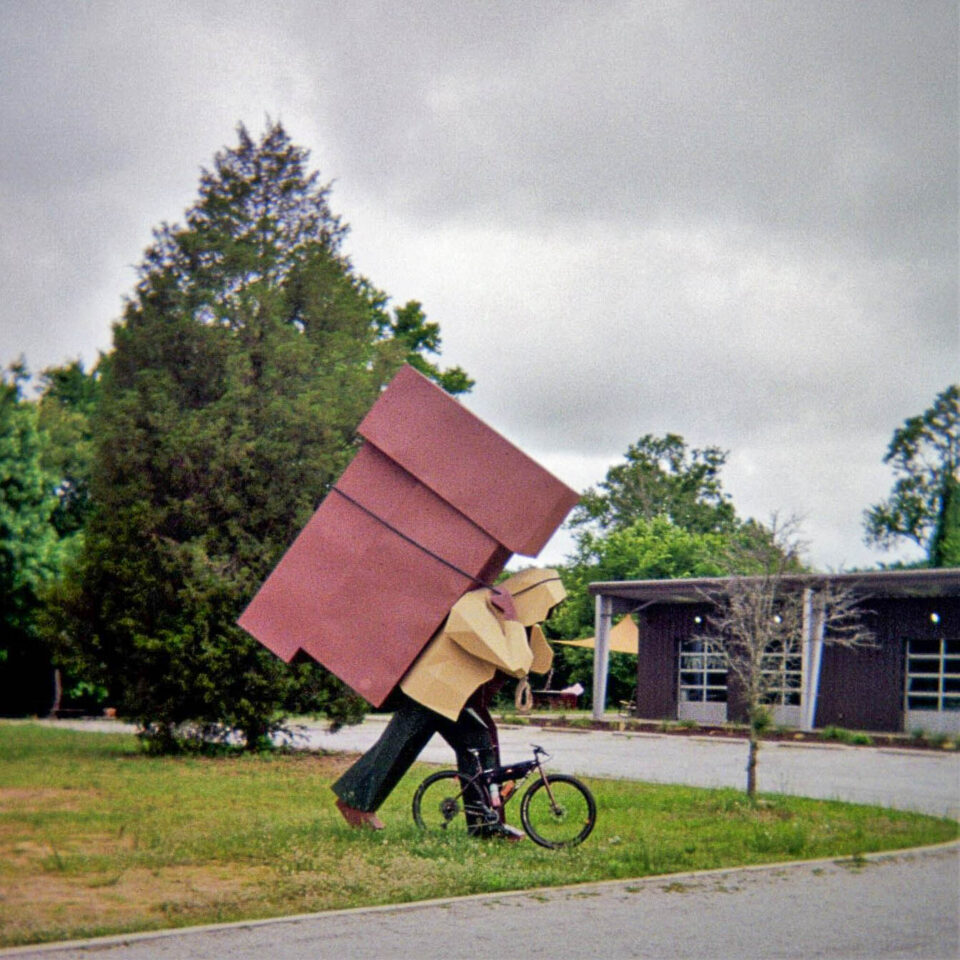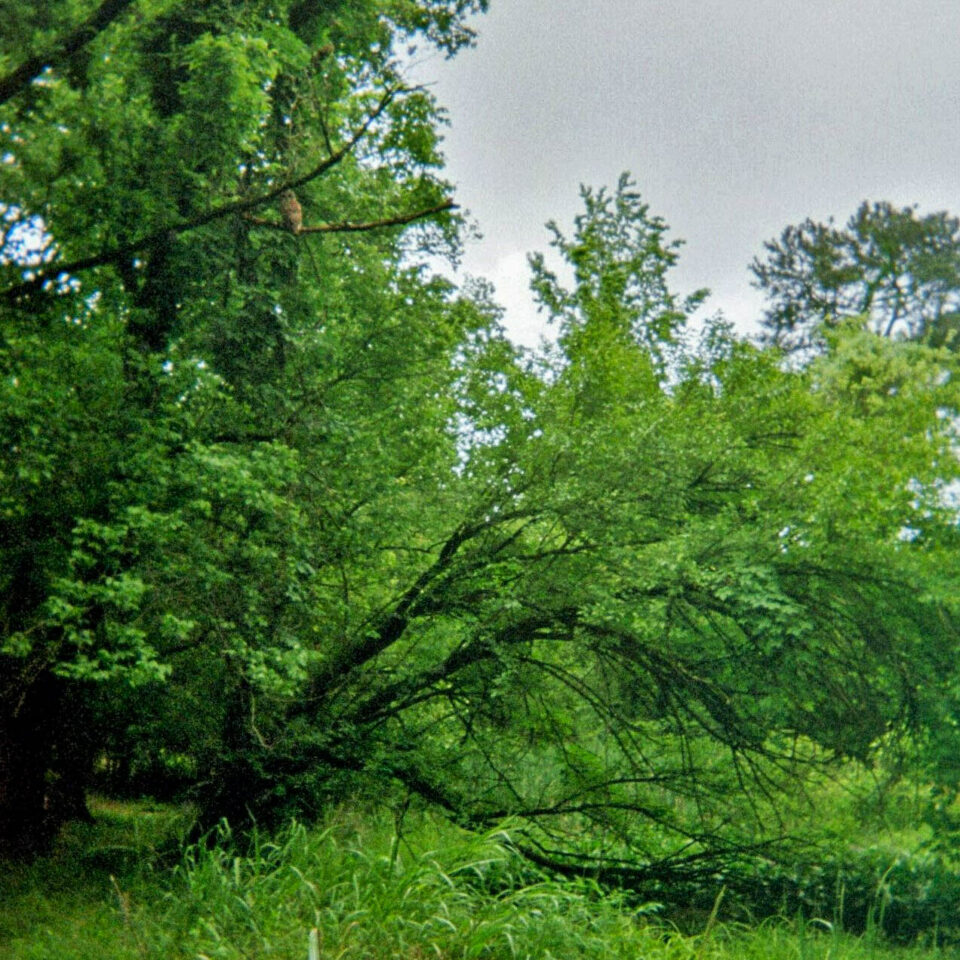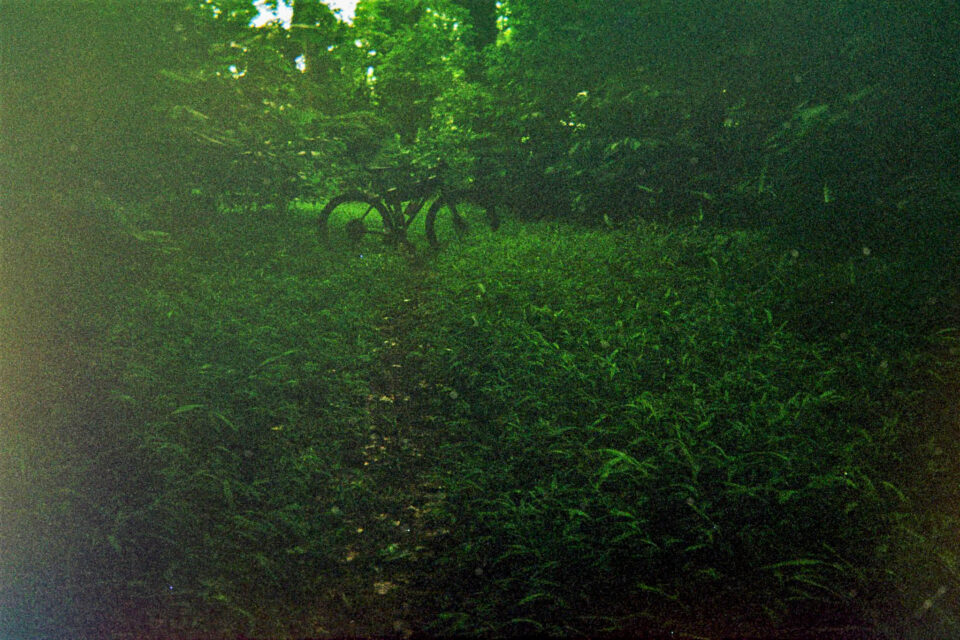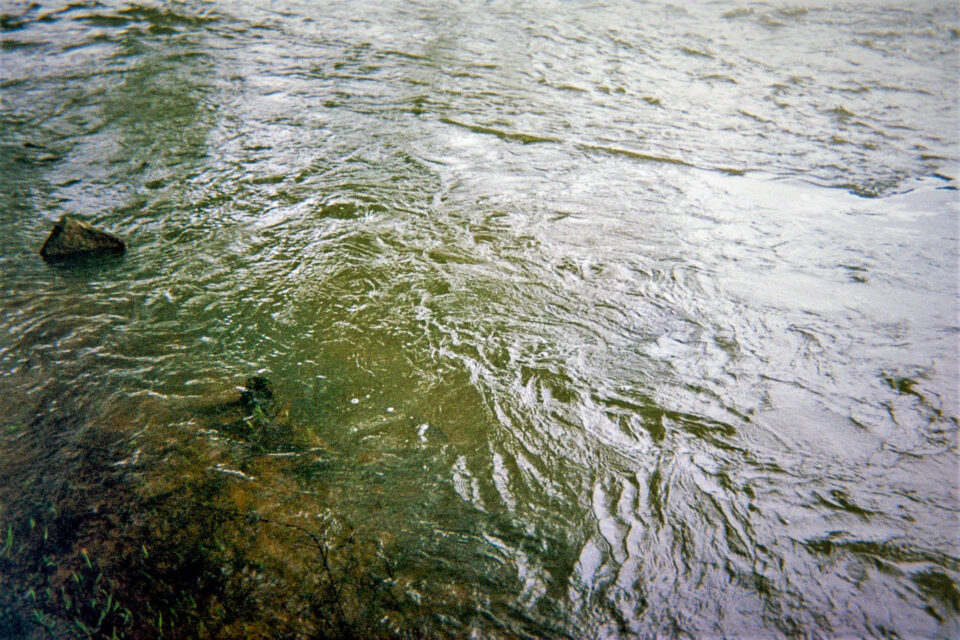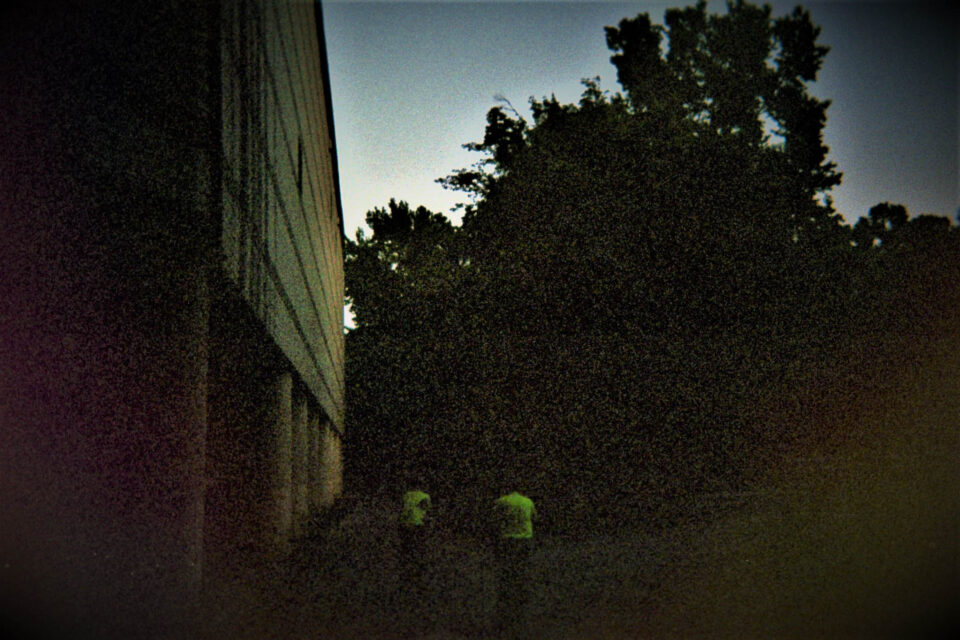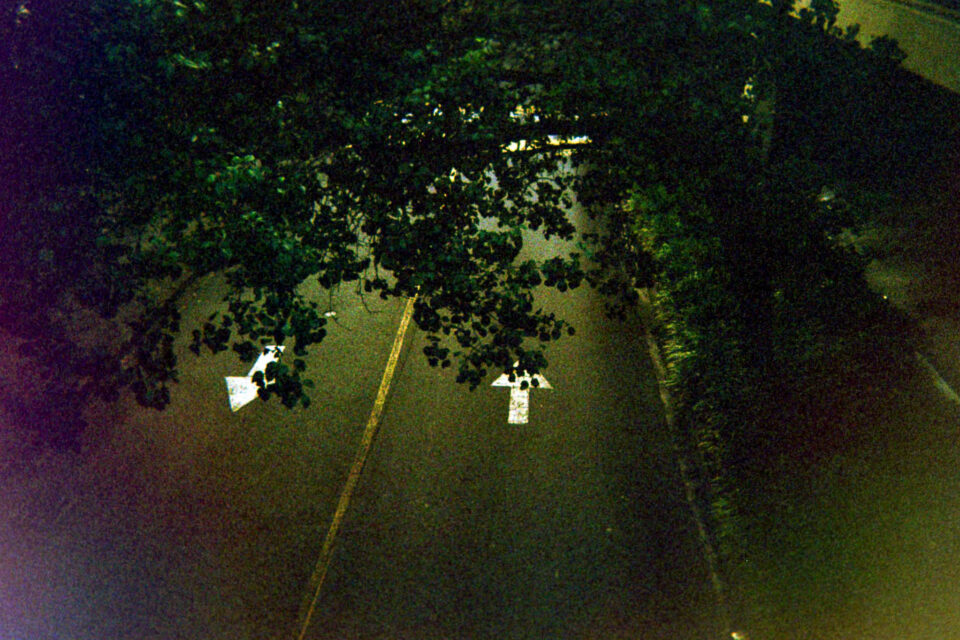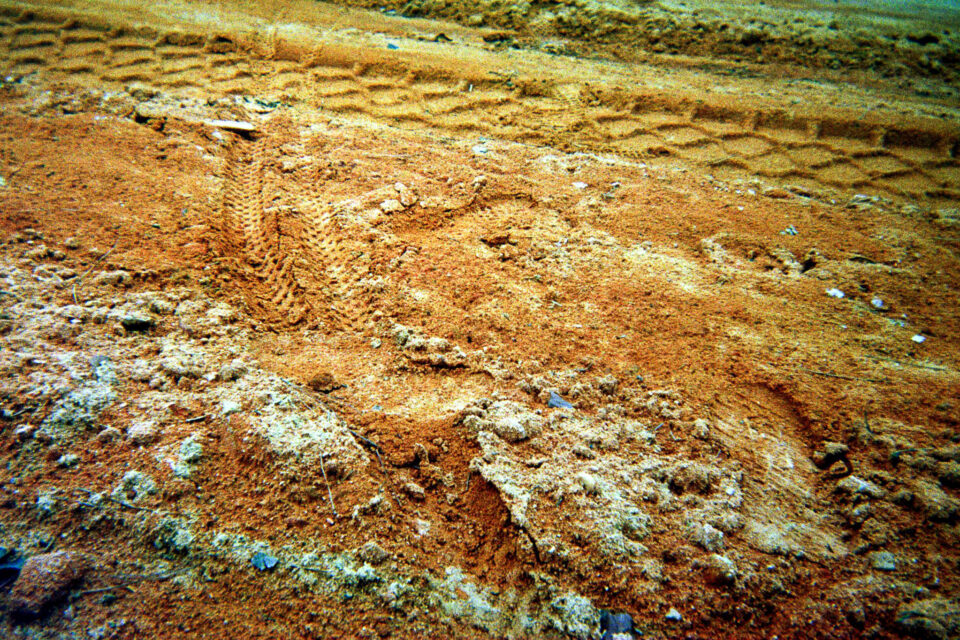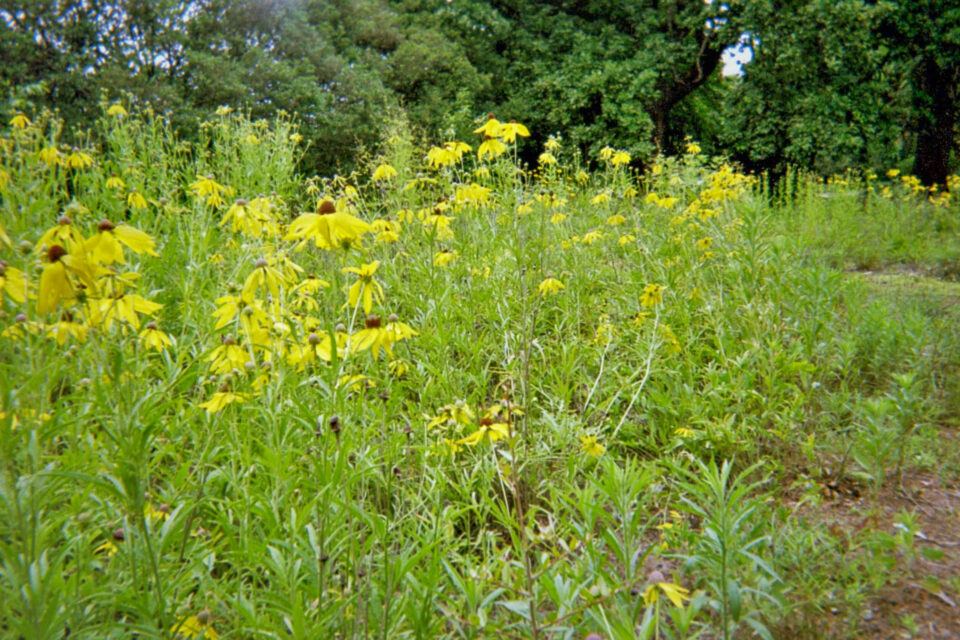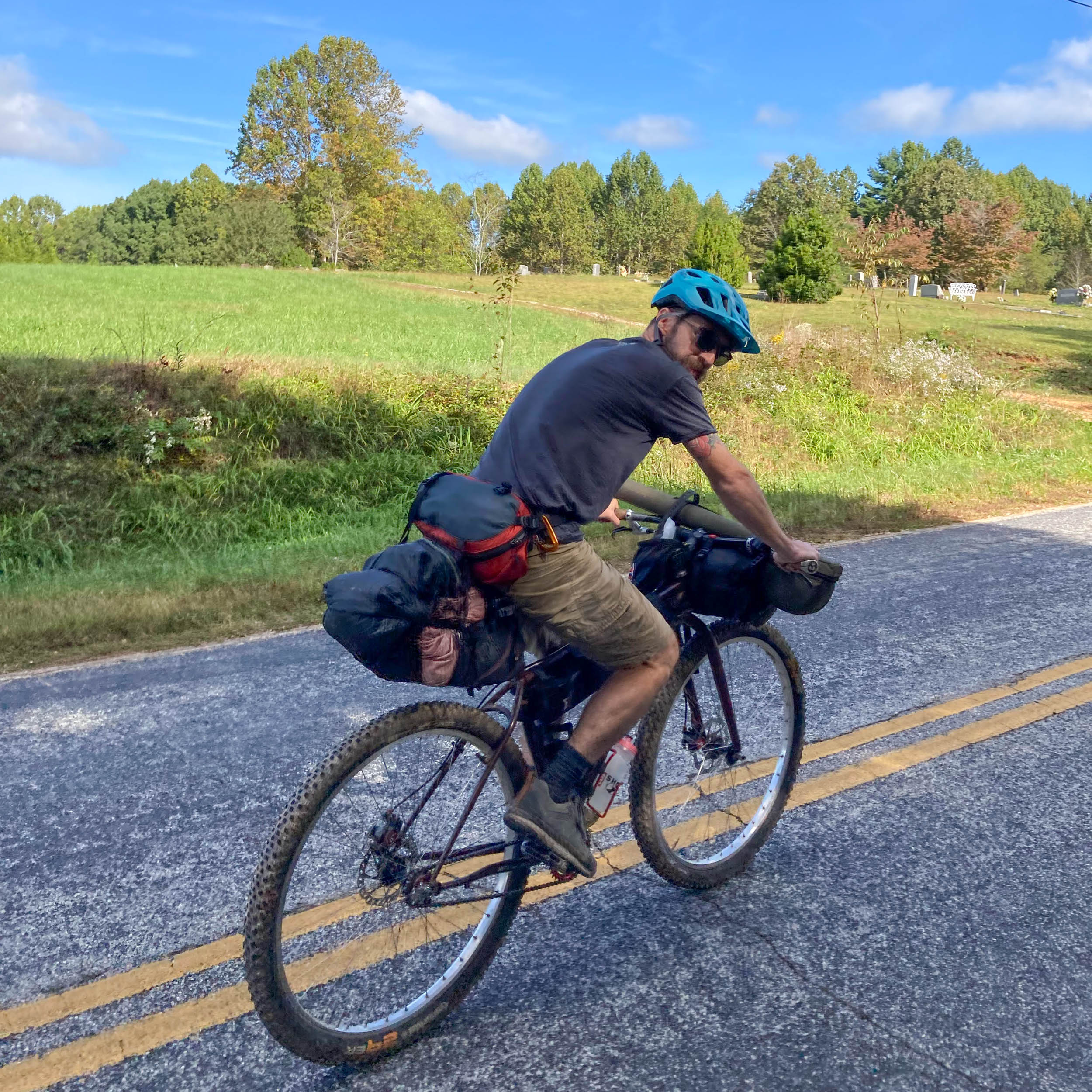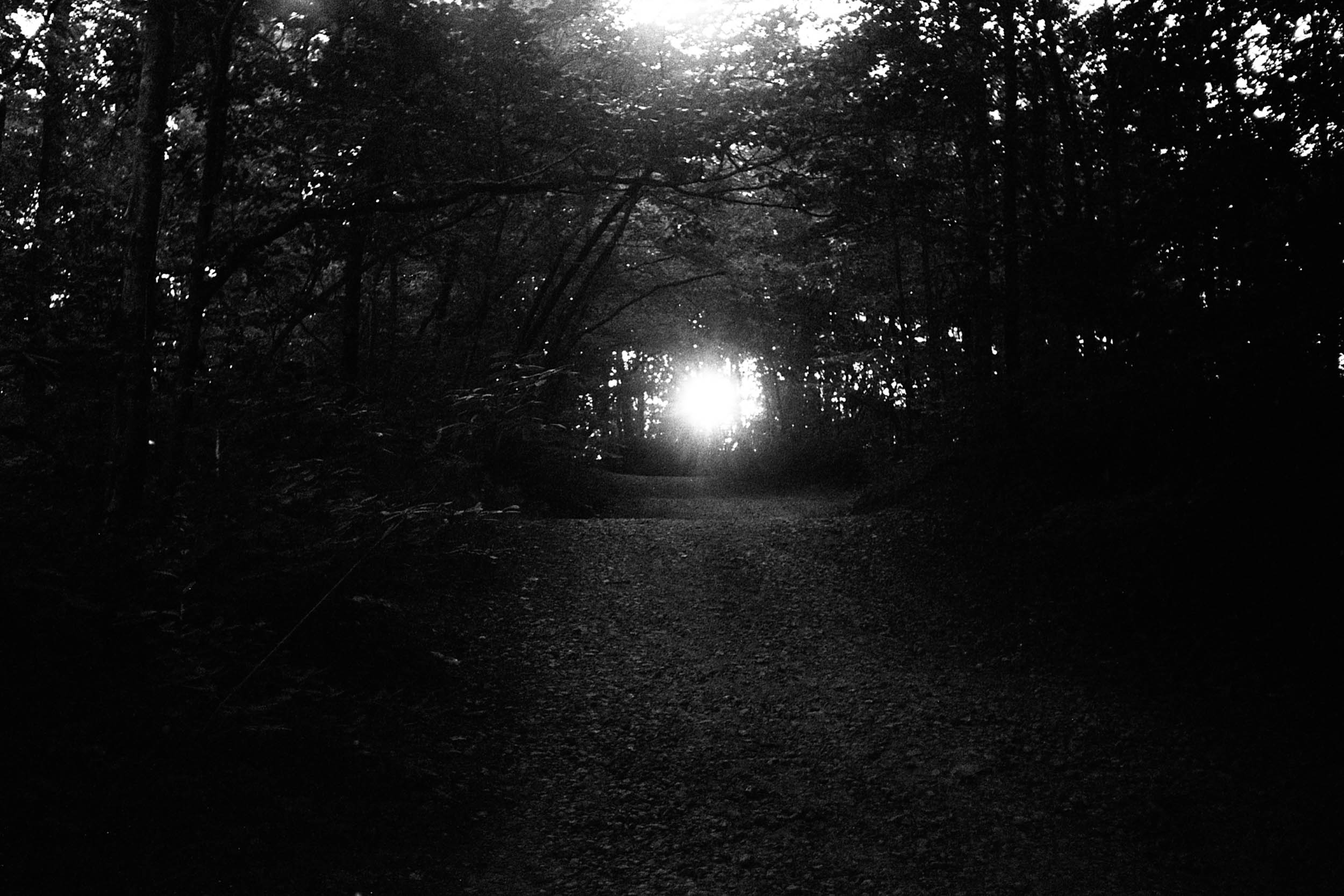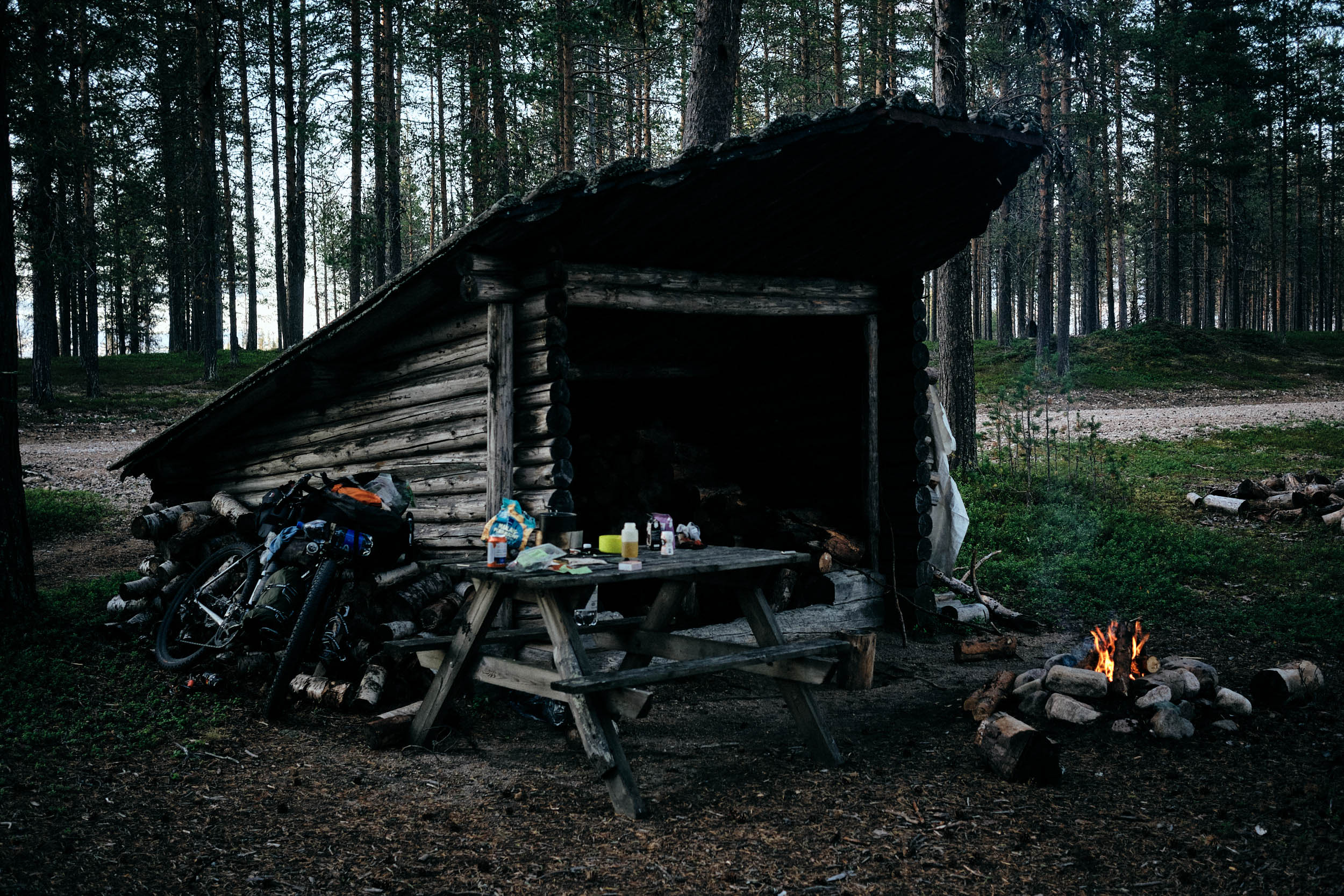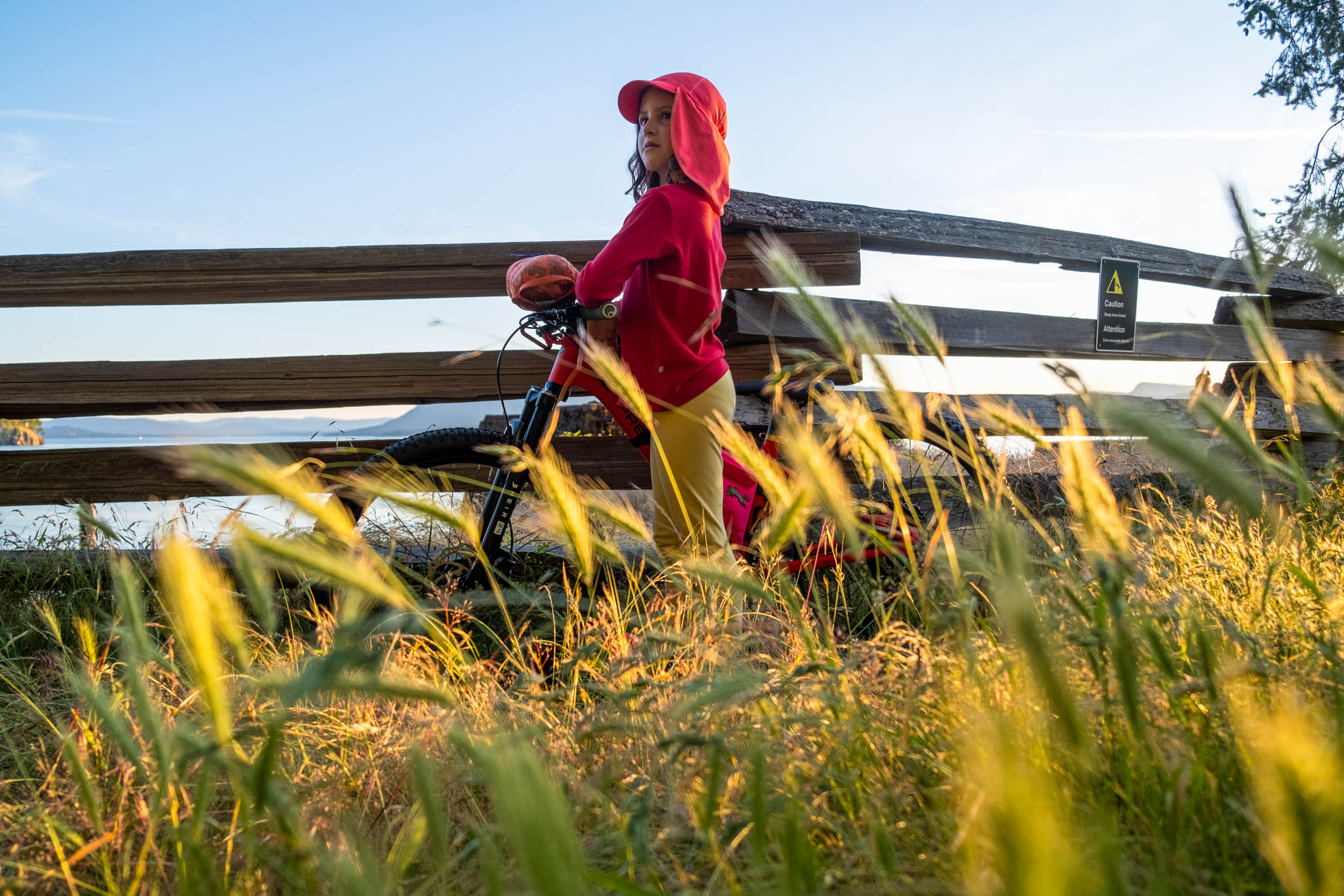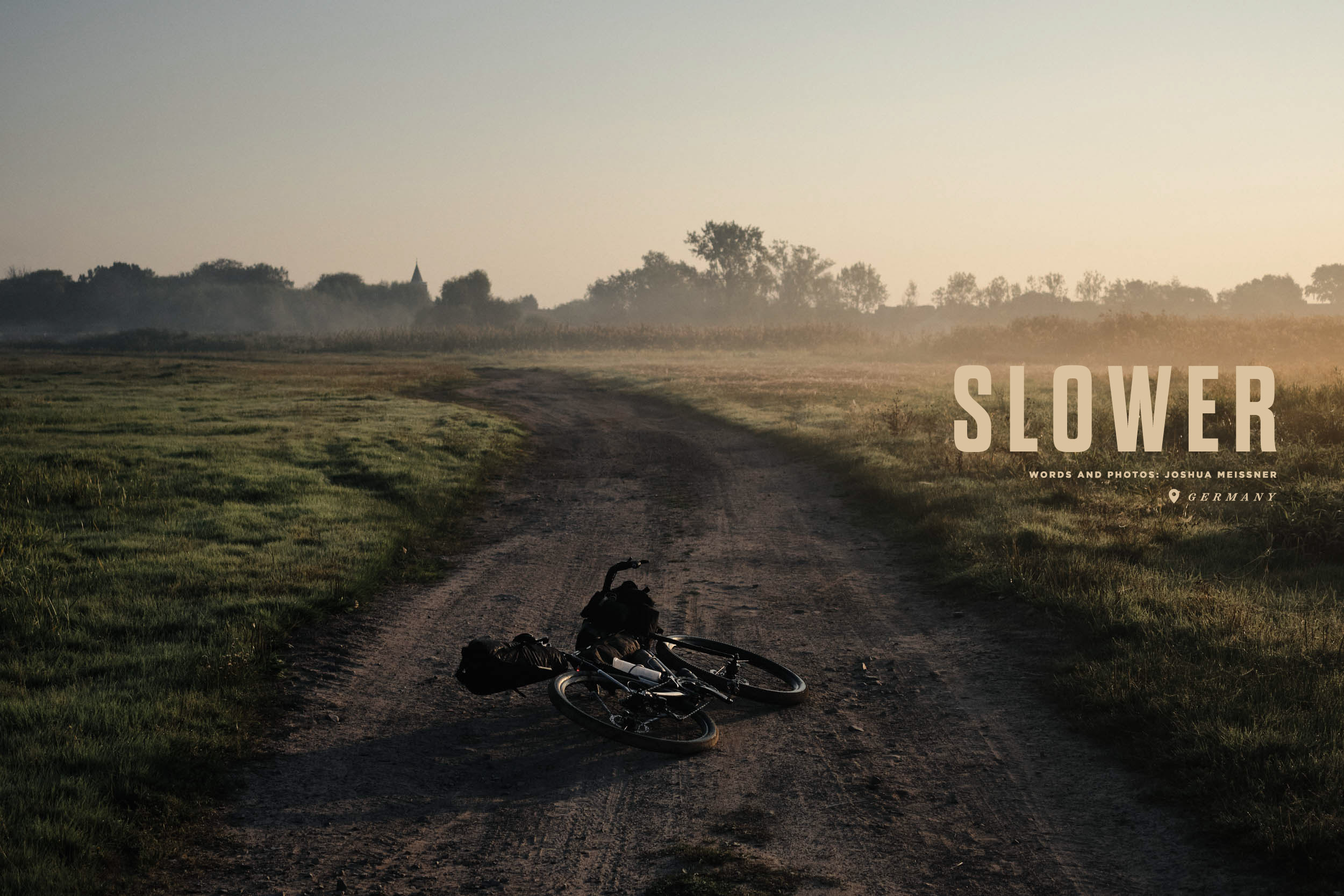A Bikepacking State of Mind
Share This
“A Bikepacking State of Mind” is a contemplative piece from Tanner Arrington that offers insight into how having a bikepacking mindset informs his daily life, from remembering to slow down and tune in to the little details to making small rides across town with his kids feel like big adventures. Find his essay and a gallery of photos shot from the saddle with a disposable film camera here…
Words and photos by Tanner Arrington
The blackbirds have convened in our trees this morning. Their noise is like the sound of the sky cracking open. The pre-sunrise gradient in the east brings the winter branches into focus, and I’m preparing our bikes. Food and belongings packed, lights blinking, wheels down, rolling into the dawn. The January air waters our eyes as we whoop and holler down the hill. We’re on a strict schedule. The tardy bell rings at 7:30 a.m.
This ritual is as sacred as any bike ride I’ve taken. On these daily rides across the neighborhood to my children’s school—among other moments, ritual or spontaneous—my thirst is quenched. Just as I drink water daily to keep my body well, I must reach for joy daily to keep my spirit well. Joy is sometimes found by chance, yet that chance is arguably greater when my perspective is shaped to find it.
A bikepacking state of mind is my attempt to draw wisdom from bikepacking experiences and cultivate that wisdom in the routine days and spaces that make up most of my life.
The motivations of anyone who goes bikepacking are as varied as the rigs they ride. No doubt, the ultra-endurance athletes who push their bodies and minds to the extreme in epic races are impressive. My own motivations have little to do with competition, as enjoyable as that can be. And full disclosure, I’ve never been on an “epic” bikepacking trip (however you might define that).
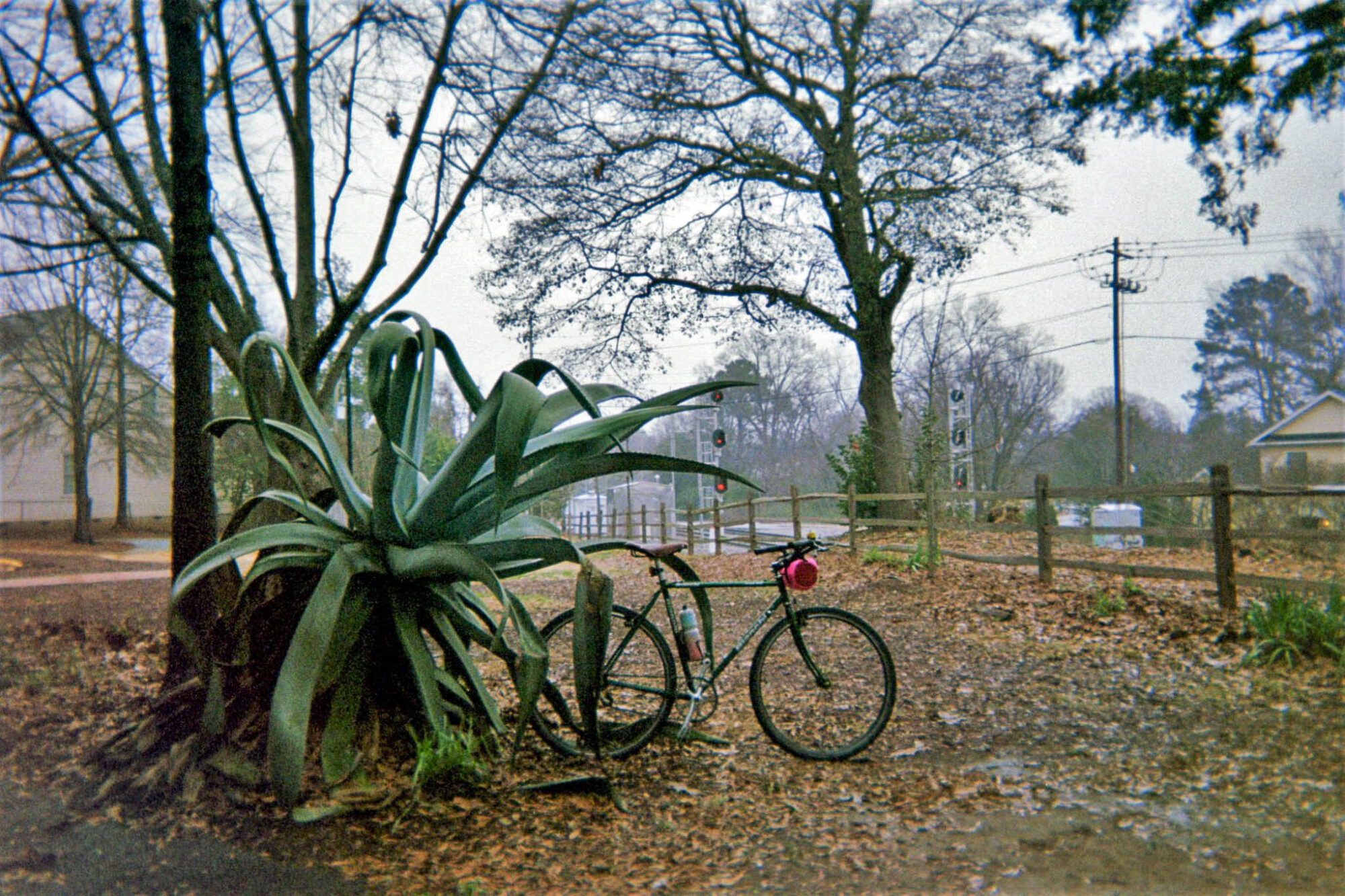
Yet, boil down an epic race and a local overnighter, and I think the bones are the same. There’s the desire to escape the mundane, to feel challenged physically and emotionally, to experience a place intimately, to connect deeply with friends, to feel small, to feel accomplished, to be washed in the elements of earth and air, to clear your mind, to fill it anew. We often described these things as a need. Or, at least, as a relief from something… a salve. A relief from what?
Andy Crouch describes a residual longing in our psyche when our technology fails to deliver on its promises.(1) He argues that technology gives us “great power with little effort,” short-circuiting our wiring. The easy targets are our ever-encroaching “smart” devices, but a broader lens reveals an entire economy built on the premise of big rewards for little effort. We’re all hungover from our constant consumption of technology, shots of cheap power, and disappointment when it fails us.
From a seat at a local cafe, I can buy nearly anything in this world from anywhere in this world with a tap of my thumb. I can connect with people over social media and know nothing about the people sitting near me or those who prepared my locally sourced food. I can consume the glossy photos from bike trips in far-flung places, convinced that others have found paradise, and know nothing about my backyard.
Our current cultural moment is full of these dissonances. Unkept promises of connection leave us thirsty.
When I started writing this, the AI chatbots had not yet hit the web and caused a total freakout. I’m sure there is cause for concern, but likely that technology will be folded into our daily lives largely unnoticed. Even more power, even less effort. I can imagine the hangover only gets worse.
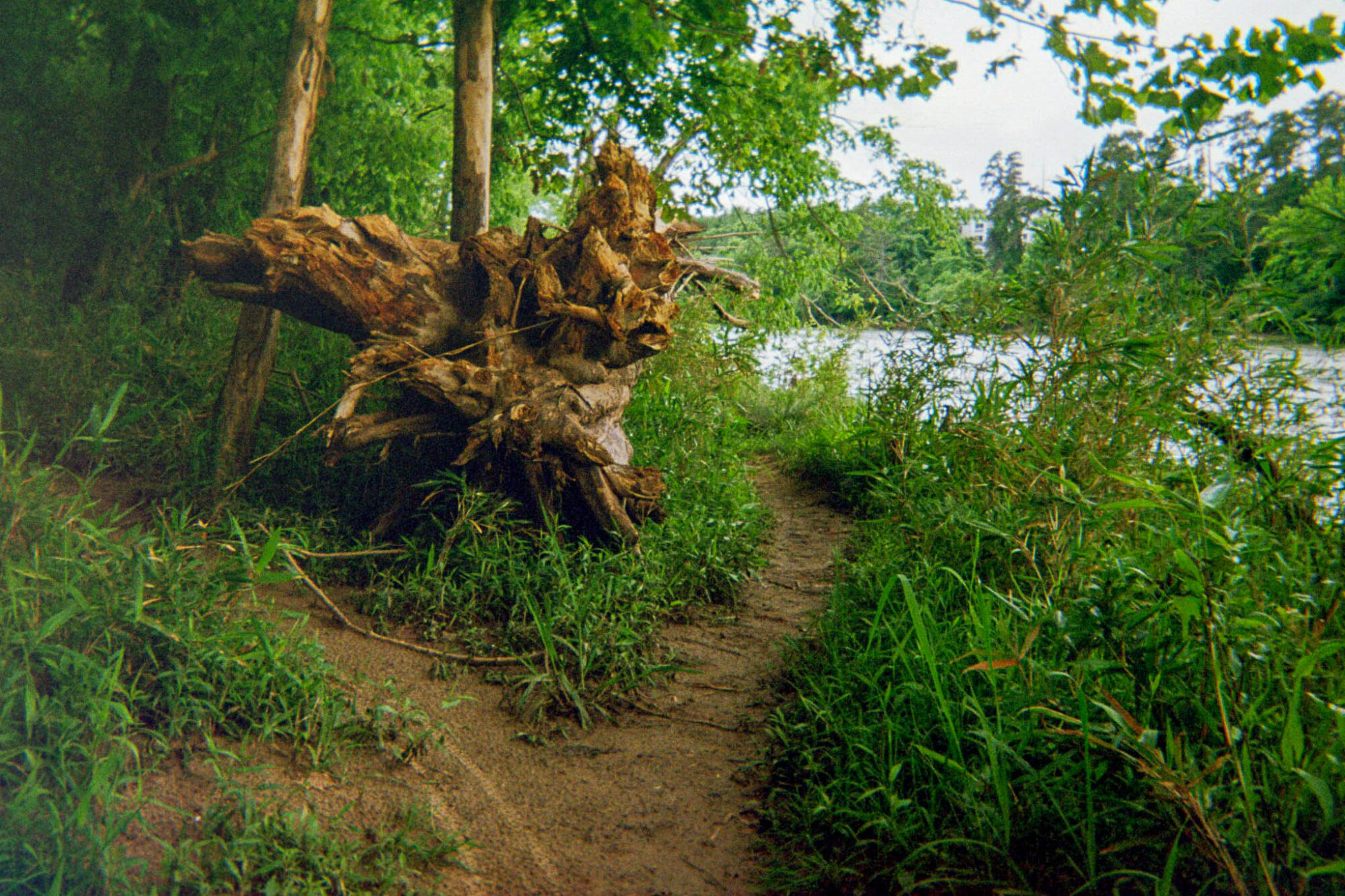
Your bike ride is not even safe; fitness metrics, Strava segments, and god help us, derailleurs that require a charger and an app to configure!
So, we look for ways to break out of that cycle and experience things which we feel like we were made for. We go on bikepacking trips or other adventures. We praise the struggle and the overcoming. We discover things about ourselves and our world. It is spiritual, and it is deep. It requires effort from our body, our mind, and our spirit. It sharpens us. We focus on what is important. Afterward, we conclude that there is something in this that is necessary, like water.
And then we come back.(2) Unless you’re the person who left this world behind to wander the globe on two wheels and has no plans of stopping. That’s not most of us. That’s not me. Most of us come back.
Wisdom Sits in Places is the title of an ethnography about the Western Apache people’s conception of place.(3) The title itself is beautiful and revealing and ultimately a more universal statement. People around the world have assigned and drawn sacred meaning from places for all of human history, even as their religion or worldview varies.
We have lost the practice of knowing a place intimately. Our hurried lives leave no room for making meaning of a place; to do so requires a pace that seems impossibly slow and an attention that is discouraged by our technology. Mary Oliver famously ends an essay with this statement: Attention is the beginning of devotion.(4) The kind of attention Oliver invokes and attaches to devotion is not just avoiding distraction the way a teacher tells a child to “pay attention, please.” Instead, her attention is an effort to notice. Slowing down, studying, and knowing.
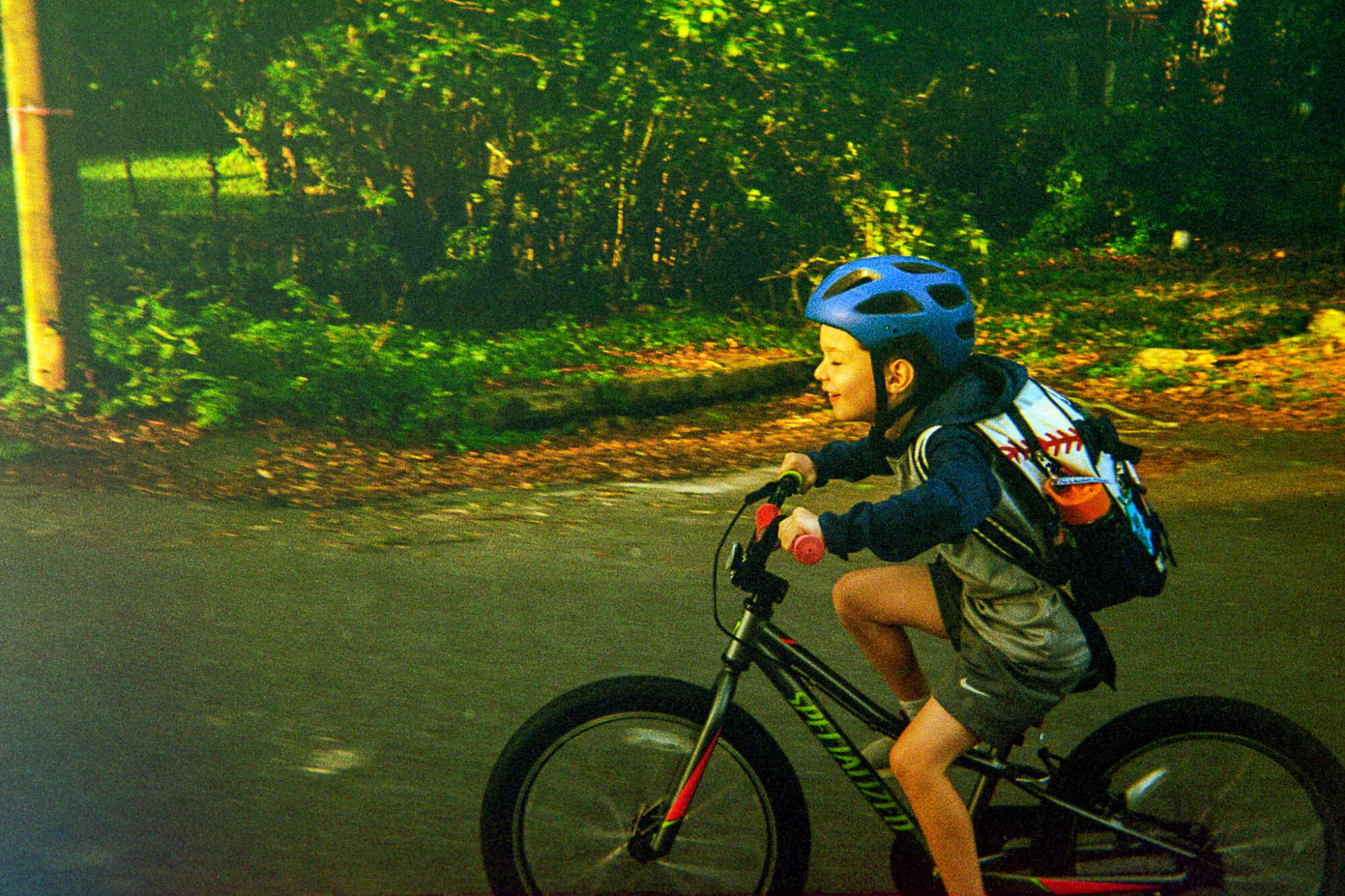
The canonical nature writers—the best writers of any genre—know this; they’ve absorbed the world around them.
One of my favorite aspects of bikepacking is the pace and exposure, opening myself up to pay attention. With nothing to do but pedal from dawn to dusk, I’m drawn into details of my surroundings. I know what the temperature is, not because the thermometer tells me, but because I feel it as I pass through it. I understand the time of day because the path is lit differently as the sun moves across the sky. Along the way, I find that places take on meaning; the ridge-top dirt road where a flock of blackbirds picking through fresh fallen leaves sounded like a waterfall, the shaded valley that brought rest from the summer sun, the cold wind funneling across the saddle after the long slog, the pool beneath the waterfall at the campsite.
How can I keep these experiences with me? What if the adventure isn’t the point—not just thrills, physical challenge, and accomplishment sought and cataloged? Can it be a pilgrimage, carrying an expectation to find something important and bring it back? Can it be instructive? Or transformative? Maybe it isn’t just an escape.
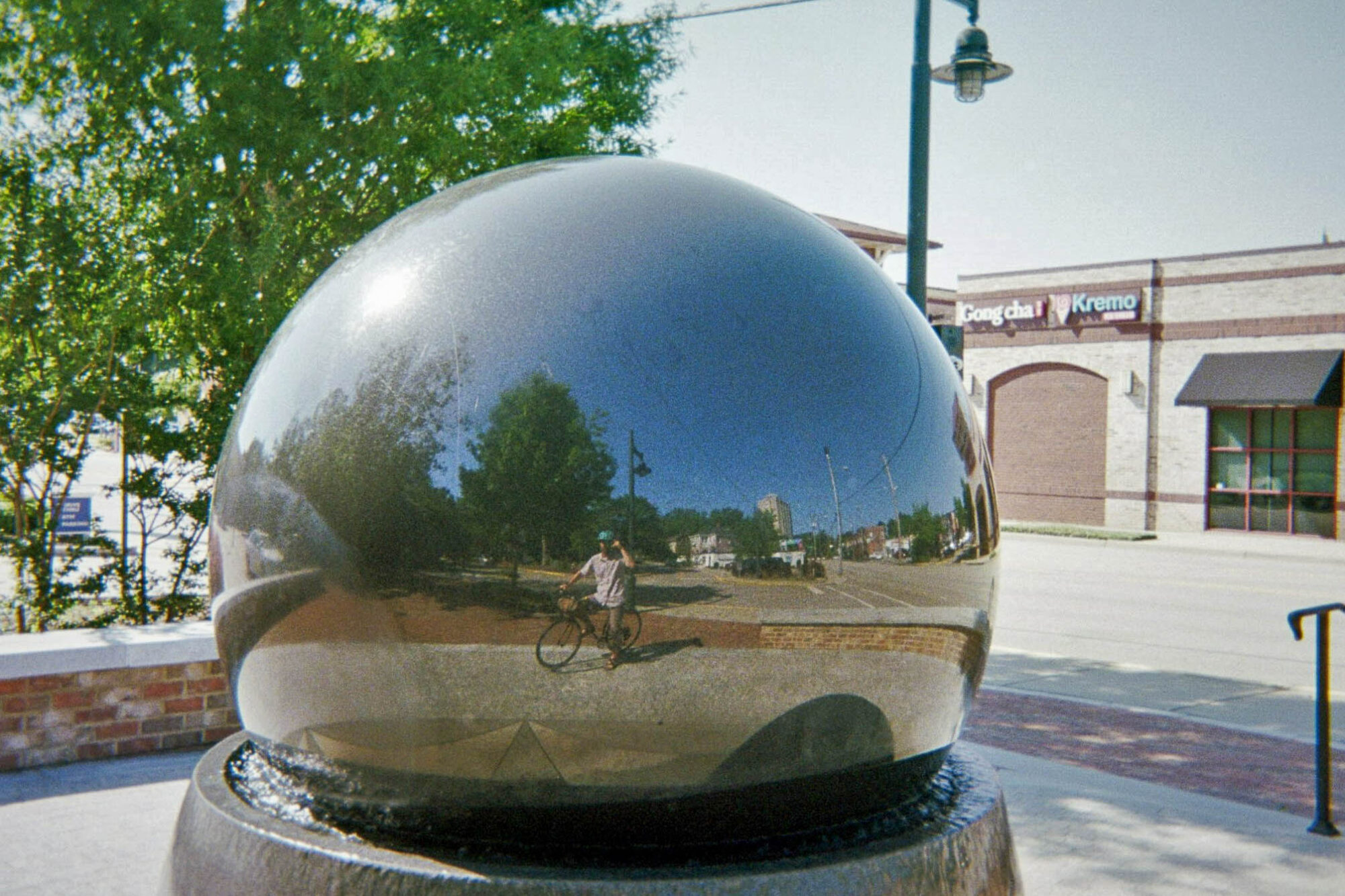
If a bikepacking trip is a pilgrimage, the gift it has given me is the courage to pursue an attentive life where I am, to apply those experiences to my current place. The bikepacking state of mind is resisting the full embrace of cheap power and distraction, even when I’m not on some photo-worthy adventure. It is not sexy, but it is beautiful. It brings a freshness to the usual, and transforms the mundane into the “remarkable ordinary.”(5)
Of course, a bicycle isn’t necessary for cultivating this perspective. We can and should exercise this muscle in different areas of our lives. The bicycle is just an instrument—a particularly fun, useful, and beautiful one.
The same things that make the bicycle an instrument of discovery for extended excursions in remote places make it great for small daily rituals at home. Riding is a unique mode for engaging with our world. A bike is a physical thing in an increasingly digital world (ad infinitum) that connects us to moments of wisdom past and grounds us in the present.
Every ride, long or short, is an opportunity for discovery. I can wander with no agenda. I pay attention. I get to know my home more deeply. I have become more integrated into my landscape instead of existing adjacent to it.
There are things most people won’t ever know about, things you will only find if you go looking. It might mean making decisions that don’t make sense. Efficiency and optimization work against you. Following rabbit trails. Doubling back. Going slow. Going up just to look. Or going down and having to come back up.
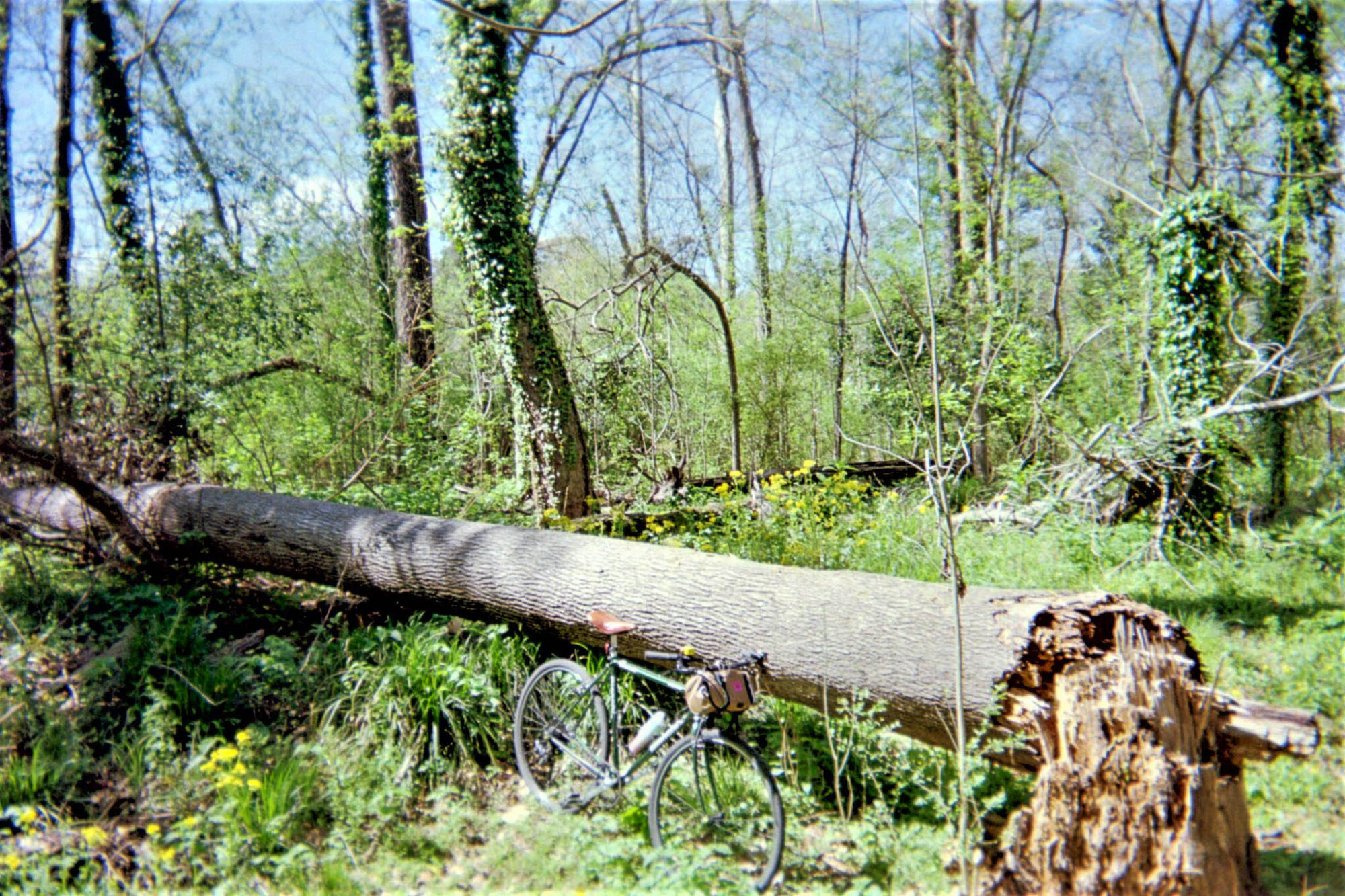
There are deer that live in the fragmented pockets of forest downtown, near the river, on wonderfully useless land that floods too often to develop. They are a stone’s throw from the state capital. Thousands of people drive by them every day. There are foxes there too. And big birds: owls, hawks, osprey. There is a bald eagle’s nest on an island in the river. And the small birds that are too shy to show up at your feeder. This is just one place.
There is a hilltop road that reveals that glimpse of golden morning sun over neighborhood treetops. There are the holly trees downtown and the cedar waxwings that pick them apart in the winter. An eddy under a leaning sycamore at the river where I watched the heron fishing. Blankets of verbena and crimson clover, an explosion of red and purple, not 100 yards from a highway, yet likely unknown to almost all who drive past.
There’s the warmth of a cup of coffee and the sun through the window on a cold morning. Architectural oddities tucked away off main throughways. Shortcut paths through powerline rights of way. Abandoned buildings hidden beneath the canopy of new forest. The taco trucks and gas station beers in the parking lot.
I began to assign meaning to places, and those places keep informing me.
After reading the most prominent nature writers, you might conclude that escaping town and wandering more “wild” places is required for true insight into nature and reflection of self. I love protected places far from the city. I love big adventures and the things about myself that are revealed. But I’ve found that there’s something surprising and wonderful about discovering the wild—the natural wild and the human wild—hidden in my city.
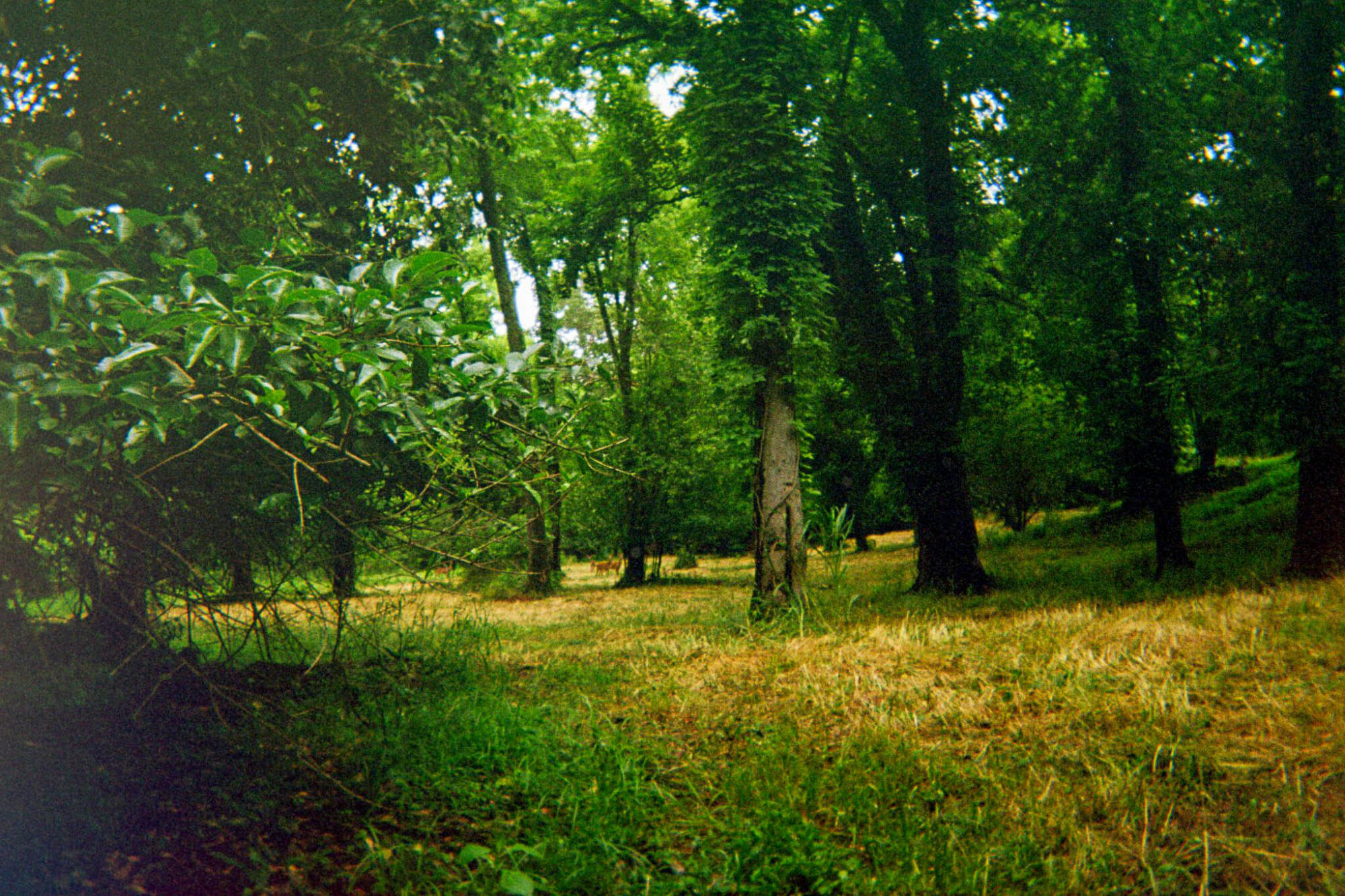
We are inclined to dualism; that nature is out there. Adventure is there. It is not here, and I must go out there to experience it. Likewise, we are fooled into viewing “wild” places as purer than they are, beyond the reach of humanity’s pressure. The adventure is purer when out there.
The reality is much less distinct, which is sobering and heartening. The idea of a peopleless wilderness only exists because people were removed or have been since excluded from the lands they helped shape for centuries before. Even now, no wild place is untouched—a fact made clear by the effects of climate change.
A part of the tension of learning a place is that you also learn the darker side. On reflection of the violence done to the earth and the people around his home in Kentucky, Wendell Berry is “painfully divided within [himself].”(6) On the bike, the systemic inequities of my hometown are visible and unavoidable. The degradation of the land is as clear as the eroded and trash-filled urban creeks are muddy. Yet there is wisdom in discovering these things up close; they are a part of the narrative.
Still, the natural world persists everywhere, and the intricate, beautiful details are right under our noses, entangled in the messes we’ve made. There is a tension in this that we can’t escape, which Helen Macdonald illustrates wonderfully in her essays.(7) We are a part of a system. Centuries of cultures have known this, but we have forgotten it. And we have unlearned something about ourselves in the process. Relearning it is an adventure and deeply satisfying.
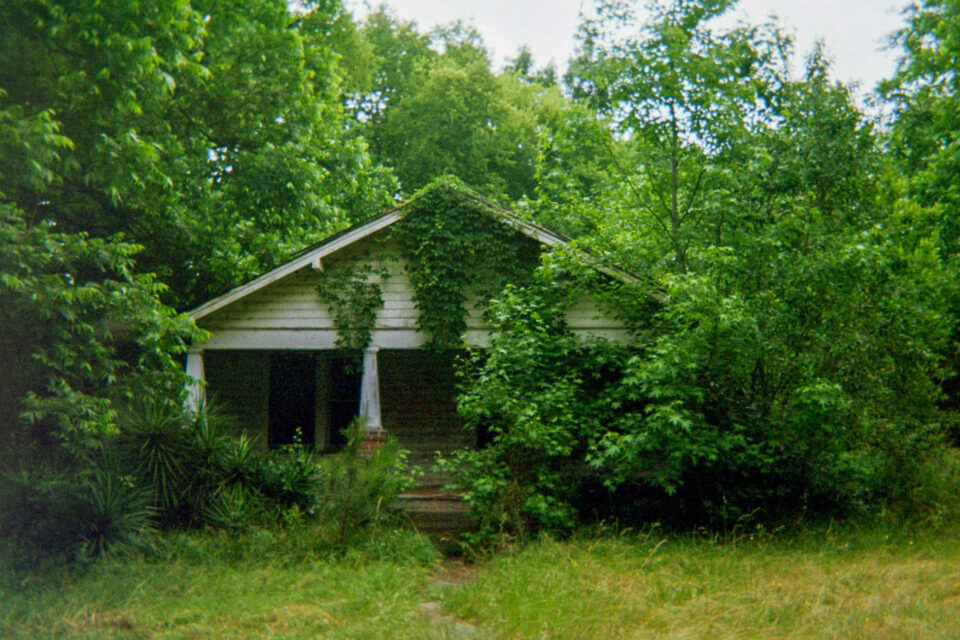
As I write this, I fear I am taking myself too seriously. Maybe so. One of the best parts of riding my bike—on a bikepacking trip or cruising around town—is that it’s just fun. There is wonder in the act of riding. Riding with my friends, careless and smiling, to a favorite bar or for a swim in the river is pure joy. A weekend ride to get donuts with my kids is a highlight of my week. Am I bogging myself down with unnecessary mental weight with all of this?
One second on my phone, and the chaos of the world washes over me. One day, with all the unwavering demands grinding away like machines determined to suck me into their gears, and my nerves are shot. I know I need to be diligent. I am thirsty. Anna Kamieńska wrote, “Joy – it’s not just a gift. In a sense it’s also a duty, a task to fulfill. Courage.”(8)
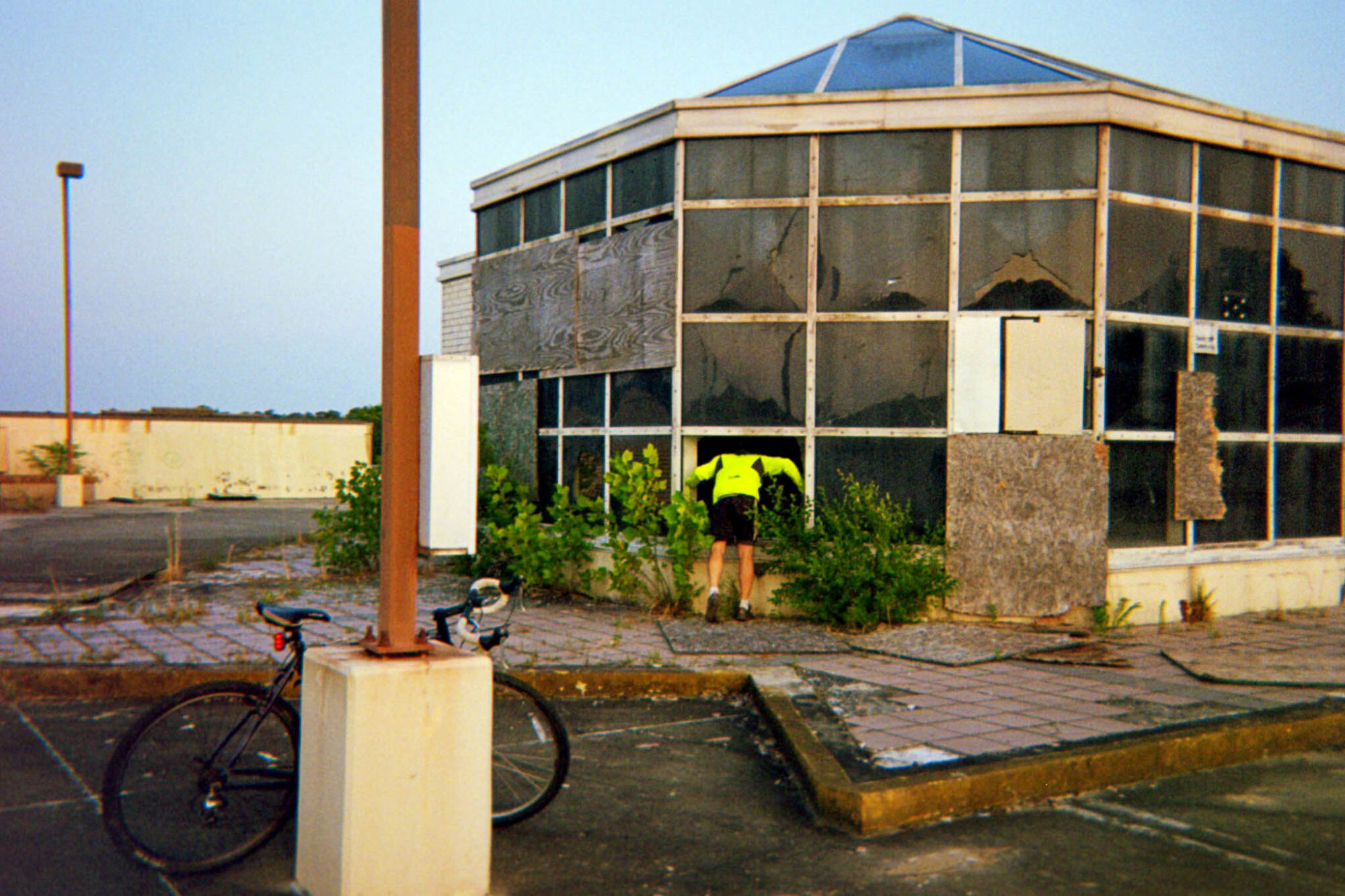
So, with a bikepacking state of mind, I wander around my home on my bike. The unnecessary is stripped away, and I am open to my surroundings. Beauty and joy are present, waiting to be discovered in small, wonderful things. Over time, the meaning I’ve assigned to those small places adds up to a library of reminders, wisdom from which to borrow when I need to be refreshed in body, mind, and spirit.
One evening, those blackbirds were back and making their noise. Then something calls them, and they heed it, somehow simultaneously, and the noise abruptly stops. They fly out of the crowns of the pines en masse, a black, pulsing streak over our heads. My daughter looks up and gasps. And then she laughs a deep, joyful laugh. And I have a beautiful model of the wisdom I seek.
Footnotes:
1. This description of our relationship to technology comes from the book called The Life We’re Looking For: Reclaiming Relationship in a Technological World.
2. See Josh Meissner’s excellent reflection on returning from an adventure, “Shaking up the Kaleidoscope,” here on BIKEPACKING.com.
3. Wisdom Sits in Places: Landscape and Language Among the Western Apache by Keith Basso.
4. This line caps the end of the title essay in a collection called Upstream.
5. This term is owed to Frederick Buechner.
6. From Wendell Berry’s essay called A Native Hill.
7. See Vesper Flights by Helen Macdonald.
8. I ran across Anna Kamieńska’s statement in a collection of poetry called Joy: 100 Poems, edited by Christian Wiman.
Further Reading
Make sure to dig into these related articles for more info...
Please keep the conversation civil, constructive, and inclusive, or your comment will be removed.




